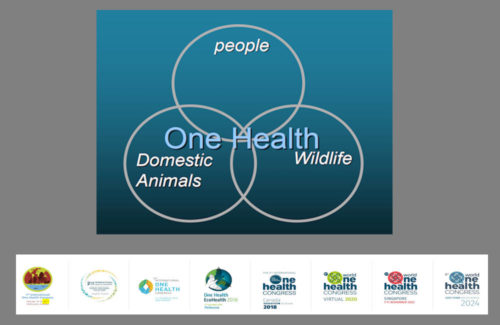On September 29, 2004 a "One World, One Health" symposium organized by the Wildlife Conservation Society (WCS) [3, 4] was held at The Rockefeller University, and was followed by many other workshops, to bring into plan One Health. Health experts "focused on the current and potential movements of diseases among human, domestic animal, and wildlife populations." They state "A broader understanding of health and disease demands a unity of approach achievable only through a consilience of human, domestic animal and wildlife health" what they call One Health. [1] "Phenomena such as species loss, habitat degradation, pollution, invasive alien species, and global climate change are fundamentally altering life on our planet from terrestrial wilderness and ocean depths to the most densely populated cities. The rise of emerging and resurging infectious diseases threatens not only humans (and their food supplies and economies), but also the fauna and flora comprising the critically needed biodiversity that supports the living infrastructure of our world" William H. Foege, a Fellow at the Bill & Melinda Gates Foundation gave the Keynote Speech: "One World, One Health, Could We Muddle Through?" and Dr. Steven Sanderson, a Political Scientist [7] who was President & Chief Executive Officer of the..
> READ MORE

